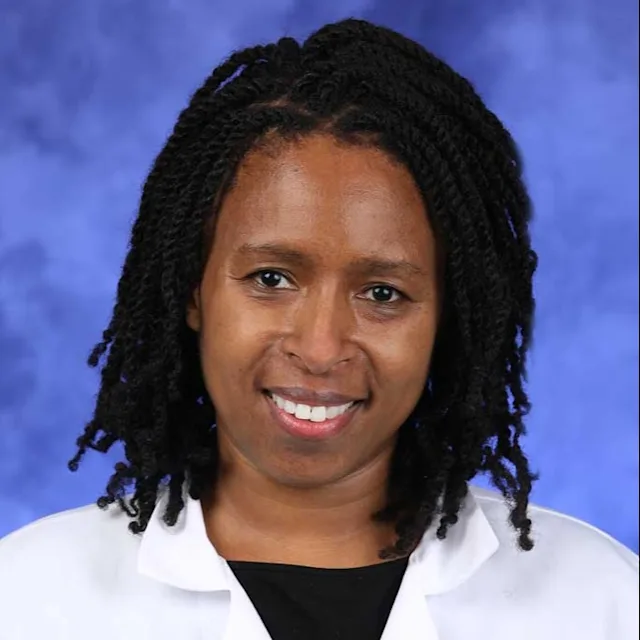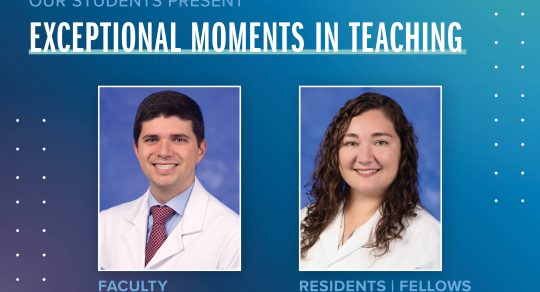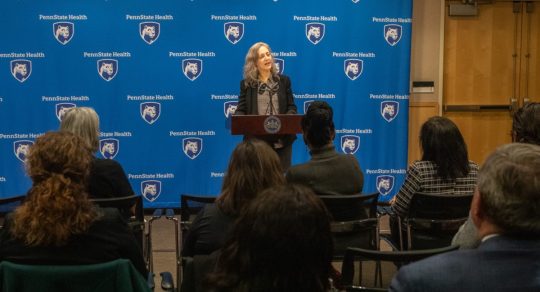Division
Reproductive Endocrinology and Infertility
On This Page
The mission of the Division of Reproductive Endocrinology and Infertility is to provide high-quality, humane and evidence-based care to couples and individuals who face barriers to fertility; and to use this approach to treat specific disorders of reproductive functioning and of the reproductive tract that effect the well-being and quality of life of effected individuals.
Welcome from Our Division Chief
Reproductive Endocrinology and Infertility (REI) is a field that addresses some of the most important and foundational issues that patients face in their lives. It is estimated that fewer than 25% of individuals with fertility challenges in the United States access care to have their needs met. In a state where the bulk of REI resources are concentrated in the far east and far west, we consider our program to be a vital part of the landscape in Pennsylvania and an important referral center for a wide catchment of patients who might otherwise be underserved.
The Division of Reproductive Endocrinology and Infertility at Penn State Health Milton S. Hershey Medical Center is a clinical practice in which patients reap the benefits of leading edge technologies and clinical care provided at a high level. Engaging novel, compassionate and streamlined approaches to the current care we administer is a step towards delivering on our clinical mission. As an academic REI division, we also have a track record of research and educational excellence fulfilling the tripartite mission of Penn State College of Medicine.
Samantha F. Butts, MD, MSCE, FACOG
Chief, Division of Reproductive Endocrinology and InfertilityProfessor of Obstetrics and Gynecology
Education in Reproductive Endocrinology and Infertility
The division supports education in the principles of Reproductive Endocrinology and Infertility both within the department and beyond it. Members of division are active participants in grand rounds presentations, regionally and nationally, and members of our group routinely present educational content to departments whose trainees have overlapping interests with REI.
The division offers rotations both for undergraduate medical education and graduate medical education, and provides didactic education for trainees, students and advanced practice providers.
OBGYN Clerkship – Medical students in the core OBGYN clerkship can select to dedicate one week subspecialty ambulatory clinical time seeing patients in the division
OBGYN Elective – For advanced medical students who have completed the core OBGYN clerkship, an month-long elective in Reproductive Endocrinology and Embryology is available. This rotation provides exposure to the ambulatory, surgical, and laboratory aspects of the subspecialty and is often sought out by students applying for residency in Obstetrics and Gynecology
OBGYN Resident Rotations – Second and third year OBGYN residents complete a rotation in Reproductive Endocrinology and Infertility. The educational goals are mastery of the following: core concepts in the diagnosis and management of infertility, building differential diagnoses for reproductive endocrine disorders, pelvic sonography as pertains to comprehension and interpretation through hands on learning, principles in reproductive surgery
Research in Reproductive Endocrinology and Infertility
The members of the REI division are nationally and internationally recognized leaders in clinical research, clinical trials and reproductive epidemiology with a focus on topics such as polycystic ovary syndrome (diagnosis and management), unexplained infertility, reproductive aging, infertility treatment outcomes, and reproductive disparities.
Studies have focused on the diagnosis, treatment and genetic/environmental causes of PCOS, as well as on improving infertility diagnosis and treatment. Members of the division have worked with multiple clinical trial/research groups to develop novel and important investigator-initiated, multi-center trials to answer clinical questions about the role of lifestyle modification, medical agents and surgery to improve human reproductive function and treat infertility.
Faculty members have pioneered the tracking of outcomes in mothers from preconception through pregnancy to the postpartum period and infants from birth onward. Faculty have served as principal investigators on many National Institutes of Health (NIH)-funded grants, including as lead investigator of the Reproductive Medicine Network for over 20 years, and have been continuously funded by the NIH for over 25 years. The impact of the research by members of the REI division has resulted in the implementation of practice that has evolved the field of REI and improved patient outcomes.
Clinical Care in Reproductive Endocrinology and Infertility
The REI program has a broad catchment with locations at 35 Hope Drive in Hershey and 130 Leader Heights Road in York. The division has extensive experience providing the full spectrum of state-of-the-art infertility treatment services to meet the needs of those seeking care who are single, coupled, LGBTQ and those whose complex medical histories impact their reproductive health.
These treatments include ovulation induction, intrauterine insemination, in vitro fertilization, preimplantation genetic testing, and fertility preservation (elective or prior to treatments for conditions such as cancer, sickle cell anemia, gender dysphoria) with egg, embryo and sperm cryopreservation. The IVF program is recognized by the Society for Assisted Reproductive Technologies among the top programs in the region based on outcomes of treatments.
The members of the group are also nationally and internationally recognized experts in the management of polycystic ovary syndrome, premature ovarian insufficiency and reproductive surgical management of conditions such as endometriosis, fibroids, and developmental anomalies of the reproductive tract.




